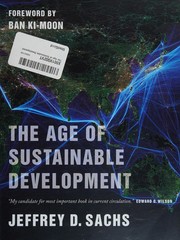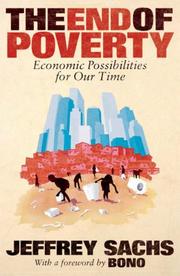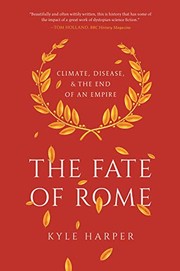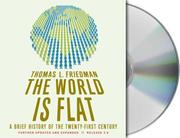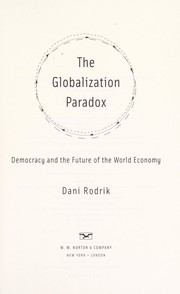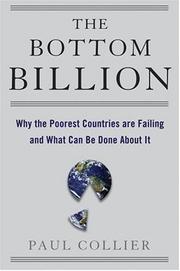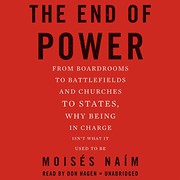Welcome to our curated list of the 20 best books on global issues that will broaden your understanding of the world we live in. From climate change to human rights, these books offer powerful insights into the pressing global issues of our time. Whether you’re a passionate advocate for change or simply seeking to expand your knowledge, these global issues books are essential reading for anyone interested in the interconnectedness of our world.
Contents
- 1 20 Best Books About Global Issues
- 2 Sapiens: A Brief History of Humankind
- 3 The Sixth Extinction: An Unnatural History
- 4 Guns, Germs, and Steel: The Fates of Human Societies
- 5 The Shock Doctrine: The Rise of Disaster Capitalism
- 6 The Age of Sustainable Development
- 7 The Uninhabitable Earth: Life After Warming
- 8 The New Jim Crow: Mass Incarceration in the Age of Colorblindness
- 9 The End of Poverty: Economic Possibilities for Our Time
- 10 The Water Will Come: Rising Seas, Sinking Cities, and the Remaking of the Civilized World
- 11 The Great Derangement: Climate Change and the Unthinkable
- 12 The Fate of Rome: Climate, Disease, and the End of an Empire
- 13 The World Is Flat: A Brief History of the Twenty-First Century
- 14 The Globalization Paradox: Democracy and the Future of the World Economy
- 15 The Bottom Billion: Why the Poorest Countries are Failing and What Can Be Done About It
- 16 The Future of Freedom: Illiberal Democracy at Home and Abroad
- 17 The End of Power: From Boardrooms to Battlefields and Churches to States, Why Being In Charge Isn’t What It Used to Be
- 18 The World Until Yesterday: What Can We Learn from Traditional Societies?
- 19 The Global Minotaur: America, Europe, and the Future of the Global Economy
- 20 The Great Transformation: The Political and Economic Origins of Our Time
- 21 The World Is Flat: A Brief History of the Twenty-first Century
- 22 Conclusion
- 23
- 24 Discover the Best Rock And Roll Books in the 2024 Updated Edition
- 25 Books on Myanmar: 2024 Update of the Best Titles
- 26 Discover the Best Traveling The World Books in the 2024 Updated Edition
20 Best Books About Global Issues
Sapiens: A Brief History of Humankind
by Yuval Noah Harari
Sapiens: A Brief History of Humankind by Yuval Noah Harari is a captivating book about global issues that takes readers on a thought-provoking journey through the history of Homo sapiens. Harari delves into the evolution of our species, exploring how Homo sapiens came to dominate the planet and shape the world as we know it today. The book examines key milestones in human history, from the Cognitive Revolution to the Agricultural Revolution and beyond, shedding light on the factors that have shaped human societies and cultures. With a blend of anthropology, history, and philosophy, Harari offers a compelling narrative that challenges readers to rethink their understanding of humanity and the global issues that continue to shape our world.
The Sixth Extinction: An Unnatural History
by Elizabeth Kolbert
The Sixth Extinction: An Unnatural History by Elizabeth Kolbert is a thought-provoking book on global issues that explores the current mass extinction of species caused by human activities. Kolbert takes readers on a journey through history, geology, and biology to understand how human actions have disrupted the delicate balance of the planet’s ecosystems. Through compelling storytelling and scientific research, she paints a vivid picture of the devastating impact of human activities on the natural world. This book about global issues is a wake-up call, urging readers to confront the reality of our role in the ongoing extinction crisis and to consider the long-term consequences for both the planet and humanity. The Sixth Extinction is a must-read for anyone interested in environmental conservation, biodiversity, and the future of our planet.
Guns, Germs, and Steel: The Fates of Human Societies
by Jared Diamond
Guns, Germs, and Steel: The Fates of Human Societies by Jared Diamond is a thought-provoking book on global issues that explores the factors that have shaped the course of human history. Diamond examines how geographical and environmental differences have influenced the development of societies, ultimately leading to the rise of some and the downfall of others. Through a captivating blend of anthropology, geography, and biology, the book delves into the impact of guns, germs, and steel on human civilization, challenging conventional notions of societal progress and success. Diamond’s insightful analysis offers a compelling perspective on the interconnectedness of human societies and the forces that have shaped our world. Whether you’re a history buff or simply interested in understanding the complex dynamics of human development, this global issues book is sure to captivate and enlighten.
The Shock Doctrine: The Rise of Disaster Capitalism
by Naomi Klein
The Shock Doctrine: The Rise of Disaster Capitalism by Naomi Klein is a compelling book about global issues that explores the rise of disaster capitalism. Klein delves into the ways in which political and economic elites exploit natural and man-made disasters to push through controversial policies and further their own agenda. Through a series of case studies, she uncovers how these shocks are used to implement free-market policies, privatize public assets, and consolidate power for the wealthy few. Klein’s in-depth analysis sheds light on the intersection of politics, economics, and human rights, making this a thought-provoking and eye-opening read for anyone interested in understanding the impact of global crises on societies and economies. The Shock Doctrine is a must-read for anyone seeking to comprehend the complex dynamics of power and profit in times of crisis.
The Age of Sustainable Development
by Jeffrey D. Sachs
The Age of Sustainable Development by Jeffrey D. Sachs is a comprehensive and insightful book on global issues. Sachs delves into the complex challenges facing our world today, from poverty and inequality to environmental degradation and climate change. He offers a compelling analysis of the interconnected nature of these issues and presents a roadmap for achieving sustainable development. Through a combination of economic, social, and environmental perspectives, Sachs provides a compelling argument for the urgent need to address these global challenges. This book is a must-read for anyone seeking a deeper understanding of the pressing global issues of our time and the potential pathways to a more sustainable future.
The Uninhabitable Earth: Life After Warming
by David Wallace-Wells
The Uninhabitable Earth: Life After Warming by David Wallace-Wells is a compelling book on global issues, offering a stark and urgent exploration of the impact of climate change on our planet. Wallace-Wells takes readers on a journey through a future world ravaged by extreme heat, rising sea levels, and devastating natural disasters, painting a vivid and alarming picture of the potential consequences of unchecked global warming. With meticulous research and powerful storytelling, the author delves into the far-reaching effects of climate change on ecosystems, economies, and human societies, making a compelling case for immediate action. This book about global issues is a wake-up call, challenging readers to confront the harsh realities of a warming planet and inspiring them to engage in meaningful solutions. The Uninhabitable Earth is an essential read for anyone concerned about the future of our world.
The New Jim Crow: Mass Incarceration in the Age of Colorblindness
by Michelle Alexander
The New Jim Crow: Mass Incarceration in the Age of Colorblindness by Michelle Alexander is a groundbreaking book on global issues that delves into the systemic racism present in the American criminal justice system. Alexander argues that the mass incarceration of Black men has created a new form of racial control, akin to the Jim Crow laws of the past. She exposes the ways in which the War on Drugs has disproportionately targeted and marginalized communities of color, leading to a cycle of poverty and disenfranchisement. The book challenges the notion of a colorblind society and calls for a reexamination of the policies and practices that perpetuate racial inequality. With meticulous research and compelling storytelling, The New Jim Crow is a must-read for anyone seeking to understand the complexities of mass incarceration and its impact on society.
The End of Poverty: Economic Possibilities for Our Time
by Jeffrey D. Sachs
The End of Poverty: Economic Possibilities for Our Time by Jeffrey D. Sachs is a groundbreaking book on global issues that offers an insightful analysis of the root causes of poverty and presents a compelling argument for its eradication. Sachs, an esteemed economist, delves into the complex interplay of economic, political, and social factors that perpetuate poverty in developing countries. He offers practical solutions and policy recommendations that have the potential to lift billions of people out of poverty, making a strong case for global cooperation and sustainable development. This global issues book is a must-read for anyone interested in understanding the challenges of poverty and seeking ways to create a more equitable and prosperous world.
The Water Will Come: Rising Seas, Sinking Cities, and the Remaking of the Civilized World
by Jeff Goodell
The Water Will Come: Rising Seas, Sinking Cities, and the Remaking of the Civilized World by Jeff Goodell is a compelling book on global issues, exploring the imminent threat of rising sea levels and its potential impact on coastal cities around the world. Goodell takes readers on a journey to various locations, from Miami to Venice, to witness firsthand the effects of climate change on these vulnerable areas. Through in-depth research and interviews with experts, the author paints a vivid picture of the potential consequences of ignoring this looming crisis. The book serves as a wake-up call, urging readers to consider the implications of rising seas and the urgent need for action to address this pressing global issue. With its engaging storytelling and thought-provoking insights, The Water Will Come is a must-read for anyone concerned about the future of our planet.
The Great Derangement: Climate Change and the Unthinkable
by Amitav Ghosh
The Great Derangement: Climate Change and the Unthinkable by Amitav Ghosh is a thought-provoking book about global issues that challenges readers to confront the unsettling reality of climate change. Ghosh explores the ways in which society has become detached from the natural world and how this disconnection has hindered our ability to address the urgent threat of climate change. Through a blend of history, literature, and personal reflection, Ghosh presents a compelling argument for reimagining our relationship with the environment and reorienting our priorities. This book on global issues urges readers to confront the unthinkable consequences of climate change and to consider the ways in which we can collectively respond to this pressing challenge. Ghosh’s insightful and urgent analysis makes The Great Derangement a must-read for anyone concerned about the future of our planet.
The Fate of Rome: Climate, Disease, and the End of an Empire
by Kyle Harper
The Fate of Rome: Climate, Disease, and the End of an Empire by Kyle Harper is a captivating exploration of the interconnected forces that led to the fall of the Roman Empire. This insightful book delves into the impact of climate change and disease on the ancient world, offering a fresh perspective on the collapse of one of history’s most powerful civilizations. Harper’s compelling narrative skillfully weaves together historical, scientific, and archaeological evidence to shed light on the complex and multifaceted challenges that the Romans faced. The book provides a thought-provoking look at how global issues such as environmental change and public health can have profound consequences for societies and empires. With its engaging storytelling and rigorous research, The Fate of Rome is a must-read for anyone interested in understanding the dynamics of societal collapse and the relevance of these issues to our modern world.
The World Is Flat: A Brief History of the Twenty-First Century
by Thomas L. Friedman
The World Is Flat: A Brief History of the Twenty-First Century by Thomas L. Friedman is a captivating book on global issues that explores the impact of globalization on the world. Friedman provides a thought-provoking overview of how the interconnectedness of the modern world has transformed the way we live, work, and interact. He discusses the implications of the internet, technology, and outsourcing on global economics and culture, presenting a compelling argument for the flattening of the world and the leveling of the playing field for individuals and businesses. With insightful analysis and engaging storytelling, Friedman sheds light on the complex dynamics of our increasingly interconnected world, making this global issues book a must-read for anyone interested in understanding the forces shaping our modern society.
The Globalization Paradox: Democracy and the Future of the World Economy
by Dani Rodrik
The Globalization Paradox by Dani Rodrik is a thought-provoking book on global issues that challenges the conventional wisdom about the relationship between democracy and the global economy. Rodrik argues that the current model of globalization, which prioritizes economic efficiency over democratic governance, is unsustainable and ultimately undermines both democracy and economic prosperity. He presents a compelling case for a new approach to globalization that prioritizes national sovereignty and democratic accountability, while still embracing the benefits of international economic integration. Rodrik’s insightful analysis and compelling arguments make this book about global issues a must-read for anyone interested in the future of the world economy and the role of democracy in shaping it. The Globalization Paradox provides a fresh perspective on the challenges and opportunities of our interconnected world.
The Bottom Billion: Why the Poorest Countries are Failing and What Can Be Done About It
by Paul Collier
The Bottom Billion by Paul Collier is a thought-provoking book on global issues that delves into the complex reasons why the world’s poorest countries are failing to thrive. Collier provides a compelling analysis of the economic, political, and social factors that have contributed to the plight of these nations, offering a fresh perspective on the challenges they face. Using a combination of research and real-world examples, the author also presents practical solutions for addressing the issues at hand. This global issues book is essential reading for anyone interested in understanding the dynamics of poverty and development on a global scale, and offers valuable insights for policymakers, scholars, and concerned citizens alike.
The Future of Freedom: Illiberal Democracy at Home and Abroad
by Fareed Zakaria
The Future of Freedom: Illiberal Democracy at Home and Abroad by Fareed Zakaria is a thought-provoking book on global issues. Zakaria explores the rise of illiberal democracies and the challenges they pose to traditional notions of democracy and freedom. Through in-depth analysis and compelling examples, Zakaria delves into the complexities of political systems and the impact of illiberal democracies on global affairs. He argues that while democracy is spreading worldwide, the quality of democracy is declining in many countries, leading to a rise in authoritarian tendencies. This book about global issues offers valuable insights into the delicate balance between democracy and freedom, making it an essential read for anyone interested in understanding the current state of global governance.
The End of Power: From Boardrooms to Battlefields and Churches to States, Why Being In Charge Isn’t What It Used to Be
by Moisés Naím
The End of Power by Moisés Naím is a thought-provoking book about global issues that challenges the traditional notions of power and leadership. Naim argues that the current landscape of global power is shifting, making it increasingly difficult for individuals and institutions to maintain control and influence. Drawing from examples in politics, business, and religion, Naim explores the ways in which power is becoming more diffuse and transient. Through compelling narratives and insightful analysis, the book sheds light on the forces shaping the modern world and the implications for those in positions of authority. Whether you’re a student of political science, a business leader, or simply interested in understanding the complexities of power dynamics, Naim’s book on global issues is a must-read that will challenge your perspectives and broaden your understanding of the world.
The World Until Yesterday: What Can We Learn from Traditional Societies?
by Jared Diamond
The World Until Yesterday: What Can We Learn from Traditional Societies? by Jared Diamond is a thought-provoking book on global issues, exploring the lessons we can glean from traditional societies. Diamond takes readers on a fascinating journey to various traditional societies, examining their social structures, parenting practices, conflict resolution, and more. Through his insightful observations, he raises important questions about modern society and the potential wisdom we may have overlooked from our ancestors. This book about global issues challenges readers to reevaluate our assumptions and consider alternative approaches to issues such as healthcare, justice, and interpersonal relationships. Diamond’s engaging storytelling and thorough research make this a compelling read for anyone interested in understanding the complexities of human society and the potential lessons we can learn from traditional cultures.
The Global Minotaur: America, Europe, and the Future of the Global Economy
by Yanis Varoufakis
The Global Minotaur: America, Europe, and the Future of the Global Economy by Yanis Varoufakis is a thought-provoking book on global issues that delves into the intricate relationship between America, Europe, and the global economy. Varoufakis, a renowned economist, offers a compelling analysis of the financial crisis and its impact on the global economy, presenting a unique perspective on the role of the United States and Europe in shaping the future of global finance. Through engaging prose and insightful commentary, the book provides a comprehensive overview of the interconnectedness of global economic forces, making it a must-read for anyone interested in understanding the complexities of the modern financial system.
The Great Transformation: The Political and Economic Origins of Our Time
by Karl Polanyi
The Great Transformation by Karl Polanyi is a thought-provoking book about global issues, exploring the political and economic origins of our time. Polanyi argues that the rise of market economies in the 19th century led to social and environmental crises, as people and nature were treated as commodities. He delves into the consequences of this transformation, including the rise of fascism and communism, and the challenges of globalization and inequality. Drawing on history, anthropology, and economics, Polanyi provides a compelling analysis of how the pursuit of profit has shaped our world. This global issues book challenges readers to rethink the relationship between economics and society, and offers valuable insights into the complex forces that have shaped the modern world.
The World Is Flat: A Brief History of the Twenty-first Century
by Thomas L. Friedman
The World Is Flat by Thomas L. Friedman is a captivating book about global issues that explores the impact of globalization on the 21st century. Friedman argues that technological advancements and the interconnectedness of the world have leveled the playing field, allowing individuals and businesses from all over the globe to compete on an equal footing. Through engaging anecdotes and in-depth analysis, Friedman illustrates how this flattening of the world has transformed industries, economies, and societies, creating both opportunities and challenges. The book delves into the complexities of global trade, outsourcing, and the rise of information technology, shedding light on the far-reaching implications of these global issues. Whether you’re a business professional, student, or simply curious about the dynamics of our modern world, The World Is Flat offers valuable insights into the intricate web of globalization.
Conclusion
In conclusion, these 20 best books about Global Issues offer a diverse and insightful look into the pressing challenges facing our world today. From climate change to poverty, these books provide valuable perspectives and potential solutions for readers who are passionate about making a difference on a global scale. Whether you’re an activist, student, or concerned citizen, these books are essential reads for anyone looking to understand and address the complex issues that impact our world.
Which Global Issues book is best?
The best book on Global Issues can vary with personal preference, but three widely recommended titles are:
- Sapiens: A Brief History of Humankind by Yuval Noah Harari,
- The Sixth Extinction: An Unnatural History by Elizabeth Kolbert,
- Guns, Germs, and Steel: The Fates of Human Societies by Jared Diamond.
Each offers valuable insights and could be a great starting point.
What are the best books to learn about Global Issues?
For those looking to learn about Global Issues, there is a wealth of literature that can provide a comprehensive understanding of the subject. Some of the most highly recommended books include:
- Sapiens: A Brief History of Humankind by Yuval Noah Harari,
- The Sixth Extinction: An Unnatural History by Elizabeth Kolbert,
- Guns, Germs, and Steel: The Fates of Human Societies by Jared Diamond,
- The Shock Doctrine: The Rise of Disaster Capitalism by Naomi Klein,
- The Age of Sustainable Development by Jeffrey D. Sachs,
- The Uninhabitable Earth: Life After Warming by David Wallace-Wells,
- The New Jim Crow: Mass Incarceration in the Age of Colorblindness by Michelle Alexander,
- The End of Poverty: Economic Possibilities for Our Time by Jeffrey D. Sachs,
- The Water Will Come: Rising Seas, Sinking Cities, and the Remaking of the Civilized World by Jeff Goodell,
- The Great Derangement: Climate Change and the Unthinkable by Amitav Ghosh
These books offer a range of perspectives on Global Issues, covering various aspects and approaches to the subject.
What are the best books on Global Issues?
The best books on Global Issues include:
- Sapiens: A Brief History of Humankind by Yuval Noah Harari,
- The Sixth Extinction: An Unnatural History by Elizabeth Kolbert,
- The Fate of Rome: Climate, Disease, and the End of an Empire by Kyle Harper,
- The World Is Flat: A Brief History of the Twenty-First Century by Thomas L. Friedman,
- The End of Poverty: Economic Possibilities for Our Time by Jeffrey D. Sachs,
- The Uninhabitable Earth: Life After Warming by David Wallace-Wells.
Each offers unique insights into the subject. While these books on the topic of Global Issues are highly regarded, it’s important to note that any list of ‘best’ books is subjective and reflects a range of opinions.
What are the best Global Issues books of all time?
Choosing the best Global Issues books of all time can vary depending on who you ask, but seven titles that are often celebrated include
- Sapiens: A Brief History of Humankind by Yuval Noah Harari,
- The Sixth Extinction: An Unnatural History by Elizabeth Kolbert,
- The Age of Sustainable Development by Jeffrey D. Sachs,
- The End of Poverty: Economic Possibilities for Our Time by Jeffrey D. Sachs,
- The Great Derangement: Climate Change and the Unthinkable by Amitav Ghosh,
- The World Is Flat: A Brief History of the Twenty-First Century by Thomas L. Friedman,
- and The Fate of Rome: Climate, Disease, and the End of an Empire by Kyle Harper.
Each of these books has made a significant impact in the field of Global Issues and continues to be influential today.





